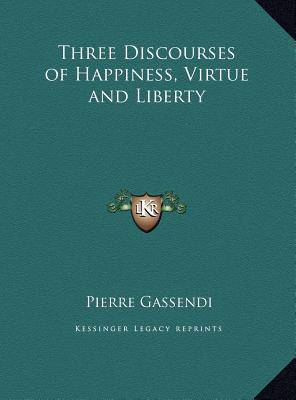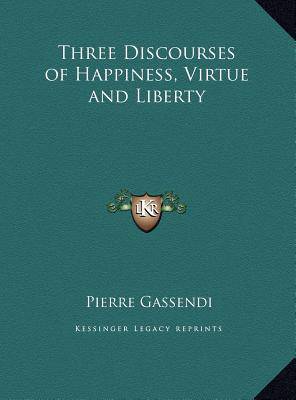
- Retrait gratuit dans votre magasin Club
- 7.000.000 titres dans notre catalogue
- Payer en toute sécurité
- Toujours un magasin près de chez vous
- Retrait gratuit dans votre magasin Club
- 7.000.0000 titres dans notre catalogue
- Payer en toute sécurité
- Toujours un magasin près de chez vous
74,95 €
+ 149 points
Description
Three Discourses of Happiness, Virtue and Liberty is a philosophical work written by Pierre Gassendi. The book is divided into three parts, each focusing on a different topic. The first discourse discusses happiness and how it can be achieved through reason and the pursuit of pleasure. Gassendi argues that true happiness is not found in material possessions, but rather in the satisfaction of our desires.The second discourse explores the concept of virtue and how it relates to happiness. Gassendi argues that virtue is not an end in itself, but rather a means to achieving happiness. He believes that virtuous actions are those that promote the well-being of oneself and others.The final discourse discusses liberty and its importance in achieving happiness and virtue. Gassendi argues that freedom is necessary for individuals to pursue their own happiness and that a just government should protect the liberties of its citizens.Throughout the book, Gassendi draws on the ideas of ancient philosophers such as Epicurus and Aristotle, as well as contemporary thinkers such as Ren����� Descartes. Three Discourses of Happiness, Virtue and Liberty is a thought-provoking and insightful work that continues to be studied by philosophers today.1699. The Epicurean philosophers placing the happiness of man in the satisfaction of the mind, and health of the body, assure us that those two are no otherwise to be procured than by a constant practice of virtue. And because they have had the bard Fate to be misrepresented by most of the other sects, as well ancient as modern, and their principles traduced as favoring the most brutal sensuality; the learned Gassendi, who had either examined their doctrine with more diligence, or interpreted their sentiments with more candor and justice, thought he could not employ his time better than to vindicate the morals of Epicurus. Written in Old English.This scarce antiquarian book is a facsimile reprint of the old original and may contain some imperfections such as library marks and notations. Because we believe this work is culturally important, we have made it available as part of our commitment for protecting, preserving, and promoting the world's literature in affordable, high quality, modern editions, that are true to their original work.
Spécifications
Parties prenantes
- Auteur(s) :
- Editeur:
Contenu
- Nombre de pages :
- 464
- Langue:
- Anglais
Caractéristiques
- EAN:
- 9781169794603
- Date de parution :
- 10-09-10
- Format:
- Livre relié
- Format numérique:
- Genaaid
- Dimensions :
- 216 mm x 279 mm
- Poids :
- 1351 g

Les avis
Nous publions uniquement les avis qui respectent les conditions requises. Consultez nos conditions pour les avis.






